In areas where the basic needs are poorly met, well-planned interventions, even if short-term, can make a significant difference in people’s life. This is one of the lessons learned from the Shirak Health Project, implemented by FIDEC in one of the poorest Armenian provinces. During the eight-month pilot phase, which began in July 2022, a group of men and women from the Horom and Pemzashen communities became aware of their health status or even found out they had conditions that need to be treated and received such treatments. They were taught habits to improve their quality of life and were empowered to self-control. Based on these preliminary results, project actions were adjusted before launching the second stage in October 2023, once again supported by the Armenian community in Argentina.
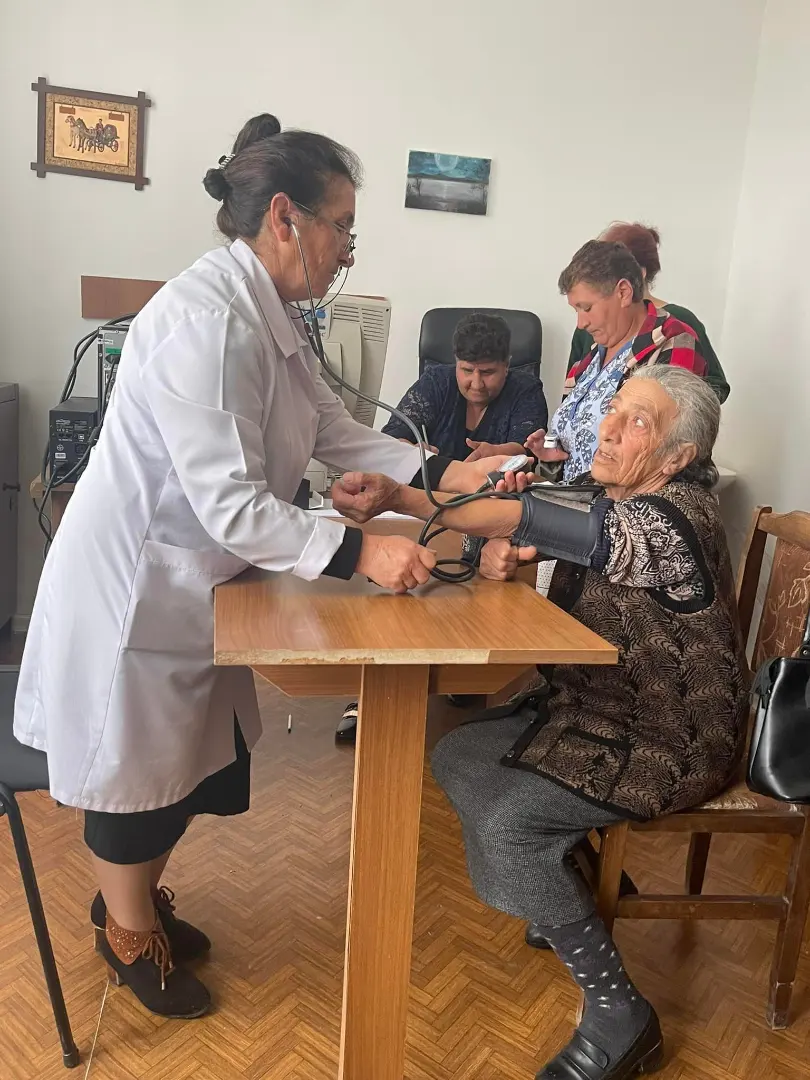
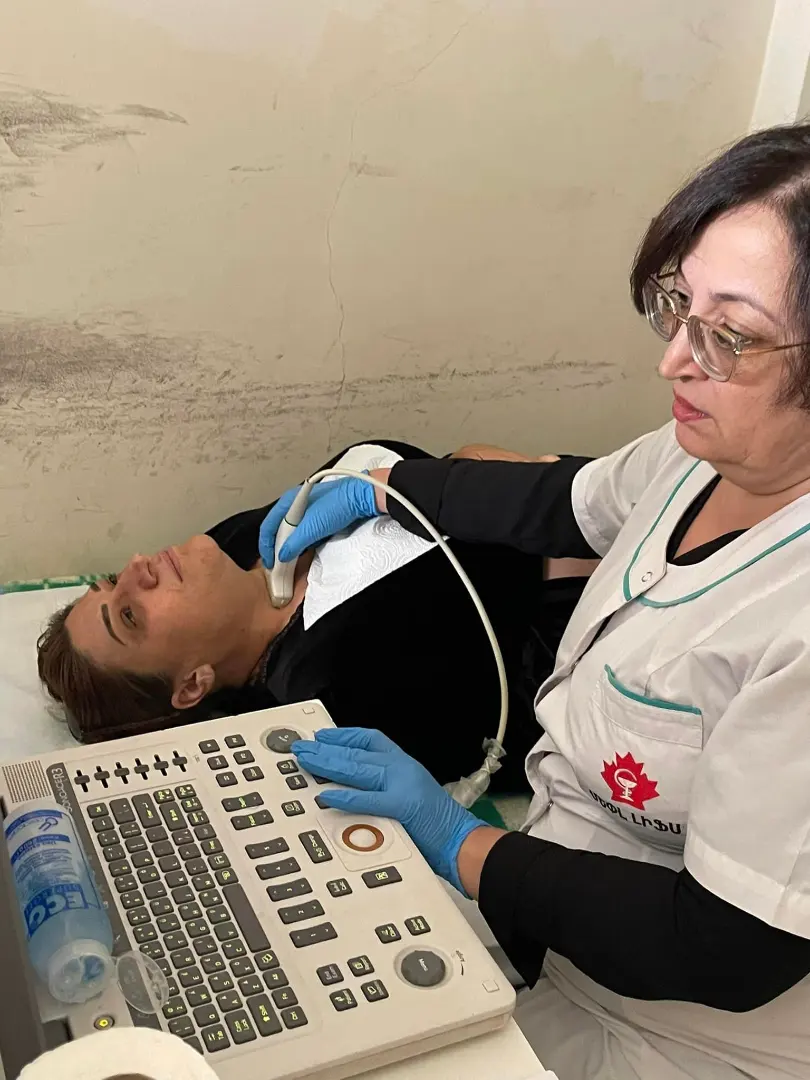
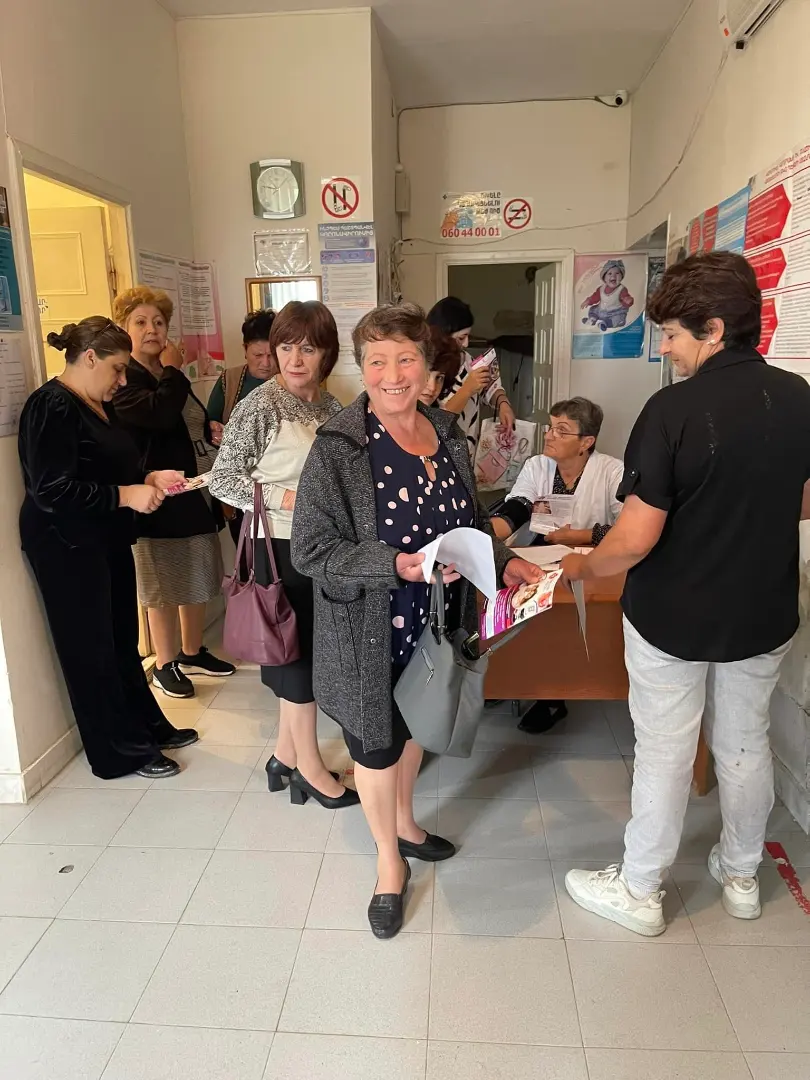
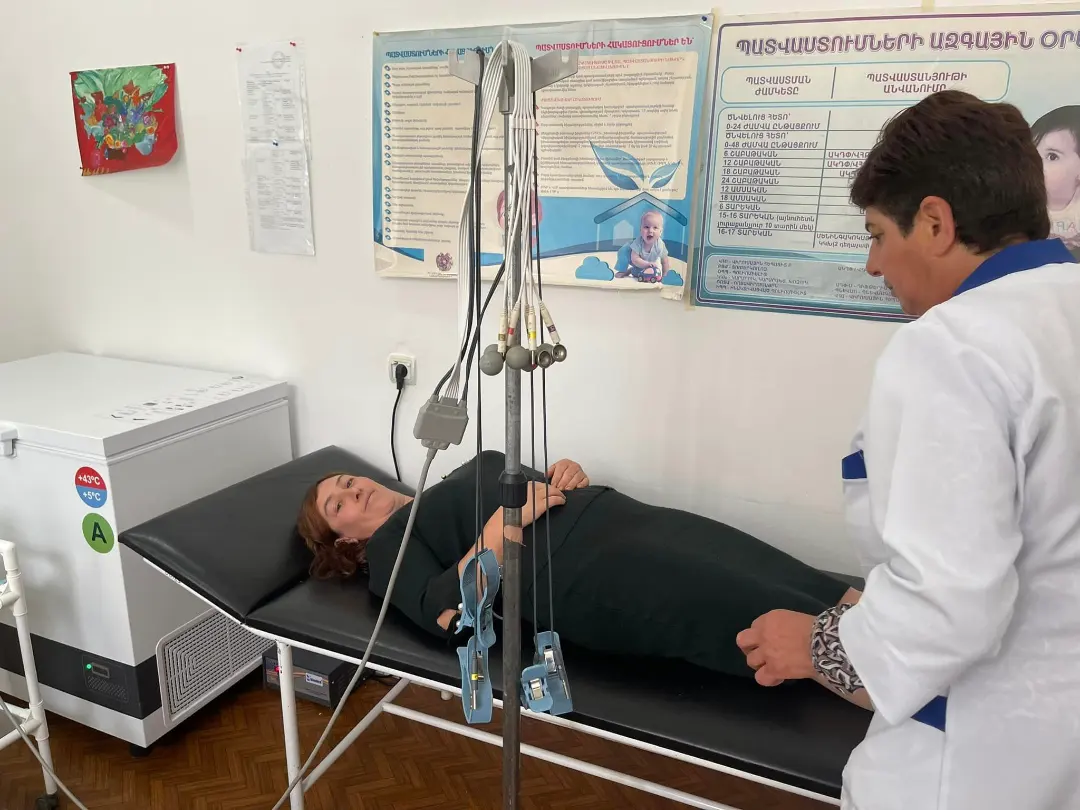
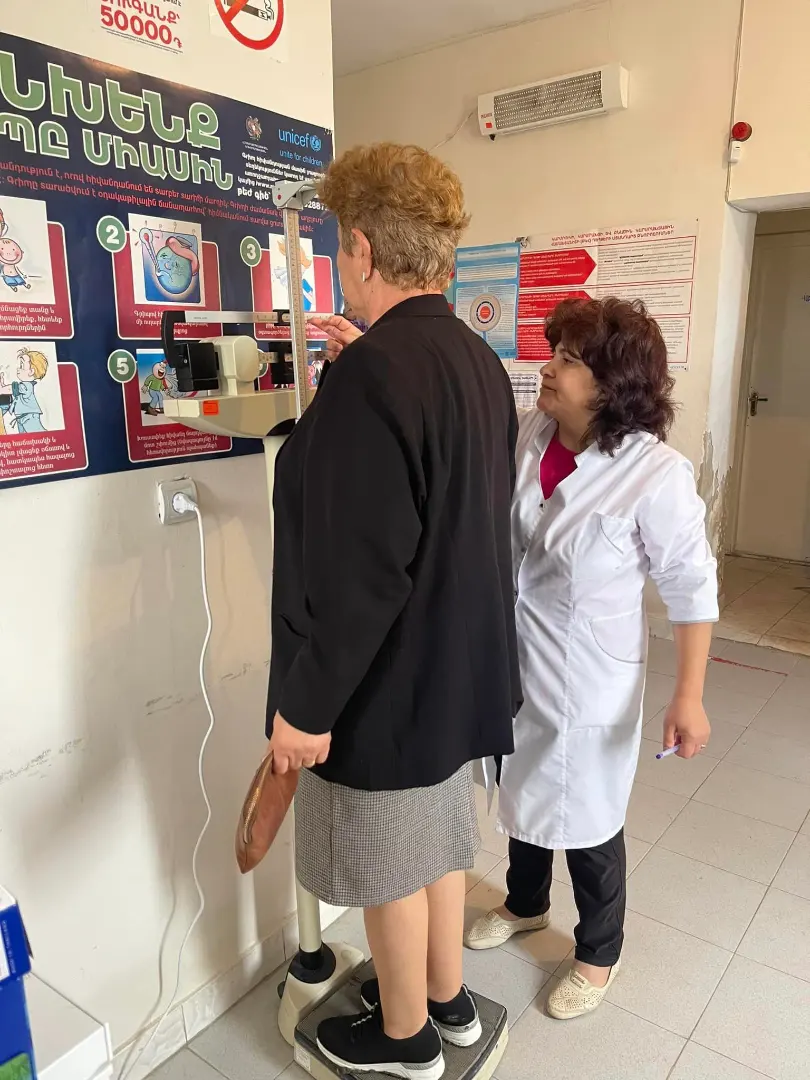
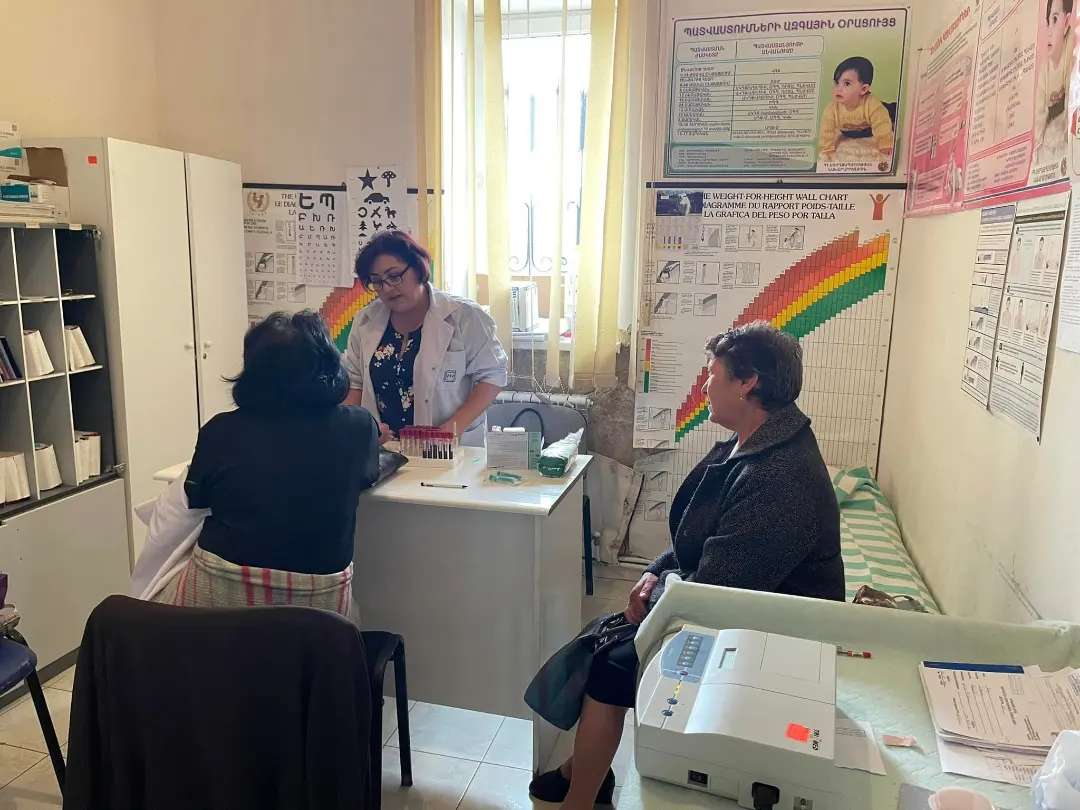
Medical interventions in Horom and Pemzashen.
“We are committed to providing free quality medical services to the low-income rural population of the Shirak Marz, particularly in the Artik region,” remarked Narine Hayrapetyan, Executive Director of FIDEC Armenia. During the pilot phase, the main target beneficiaries were 120 men and 120 women aged 40-75 years. “The project also included components for the younger population, aiming to improve family planning practice and to decrease the prevalence of sexually transmitted diseases associated with high rates of labor migration, as well as to contribute to children’s health through helminthiasis screening,” added Hayrapetyan.
The local healthcare staff in outpatient settings, together with a visiting mobile team of gynecologists, ultrasound specialists, and a laboratory nurse, performed comprehensive medical check-ups and exams. “Frequently diagnosed conditions in adult patients were high blood pressure or cholesterol level; thyroid gland problems; and gynecological or urological disorders, among others,” stated Pablo Elmassian, Medical Director of FIDEC Armenia. After routine examinations, 14% required further medical procedures, including colposcopy or surgeries. “About 10% of patients with hypertension were referred to a specialized clinic in Gyumri for further examination and treatment,” said Elmassian. Women with abnormal mammography screening results were also referred to an oncology center for consultation. While none had developed breast cancer, two male patients were diagnosed with prostate cancer and underwent surgery in Yerevan’s specialized clinics.
Prevalent health conditions in screened adults aged 40-75 years
High blood pressure
Newly diagnosed
High cholesterol level
Most unaware and untreated
The multicomponent interventions also included educational activities and provision of medical supplies, besides medications. “For example, 120 community members diagnosed with diabetes received glucometers and strips to better control their disease. Half of them participated in the training on diabetes control, healthy diet, and care,” detailed Hayrapetyan. Over 170 patients were provided with medication against high blood pressure or high cholesterol levels for three months. Four out of ten women needed an anti inflammatory treatment for gynecological conditions. As a preventive measure, all the project beneficiaries received vitamin D3 capsules for six months.
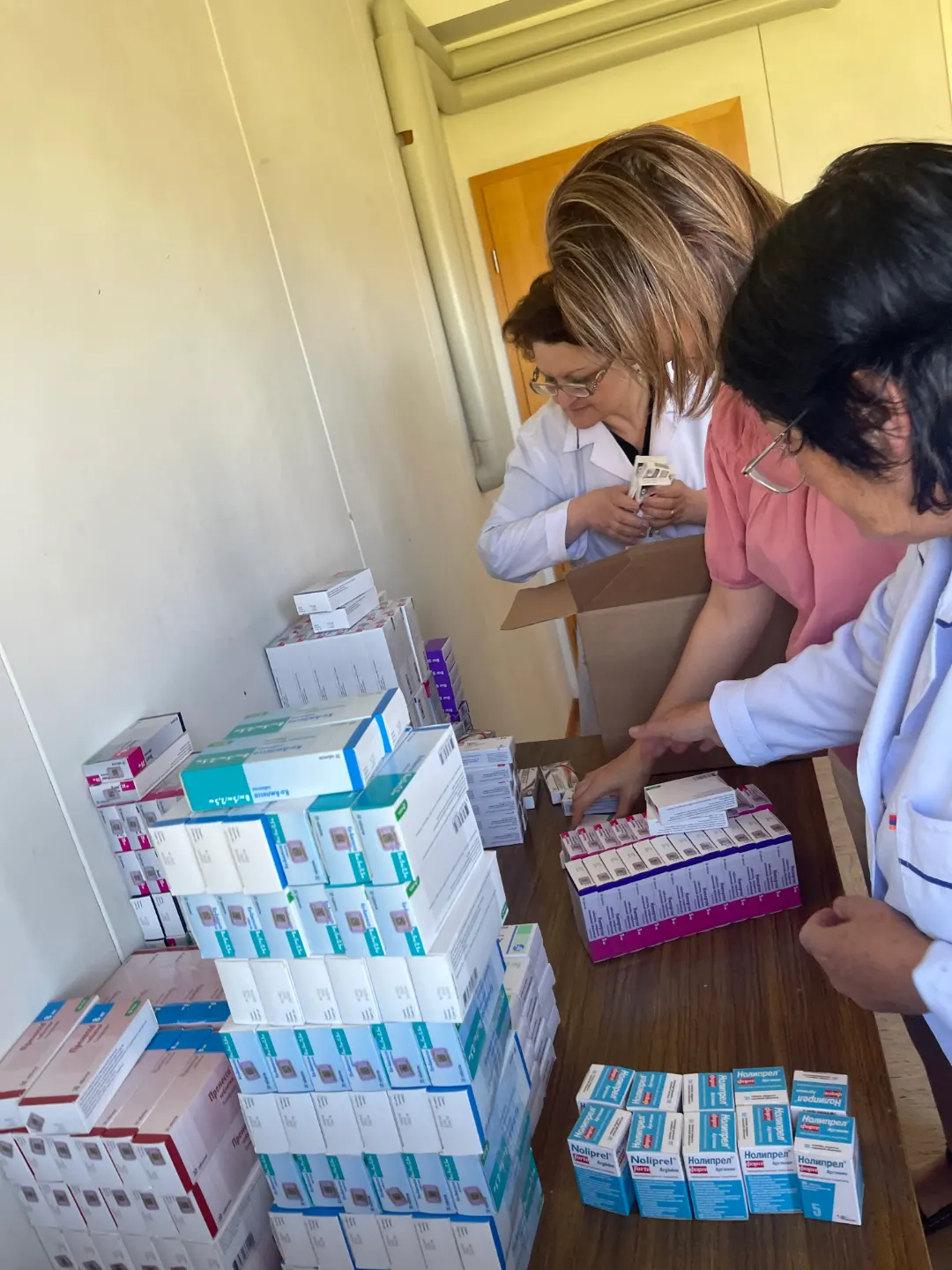
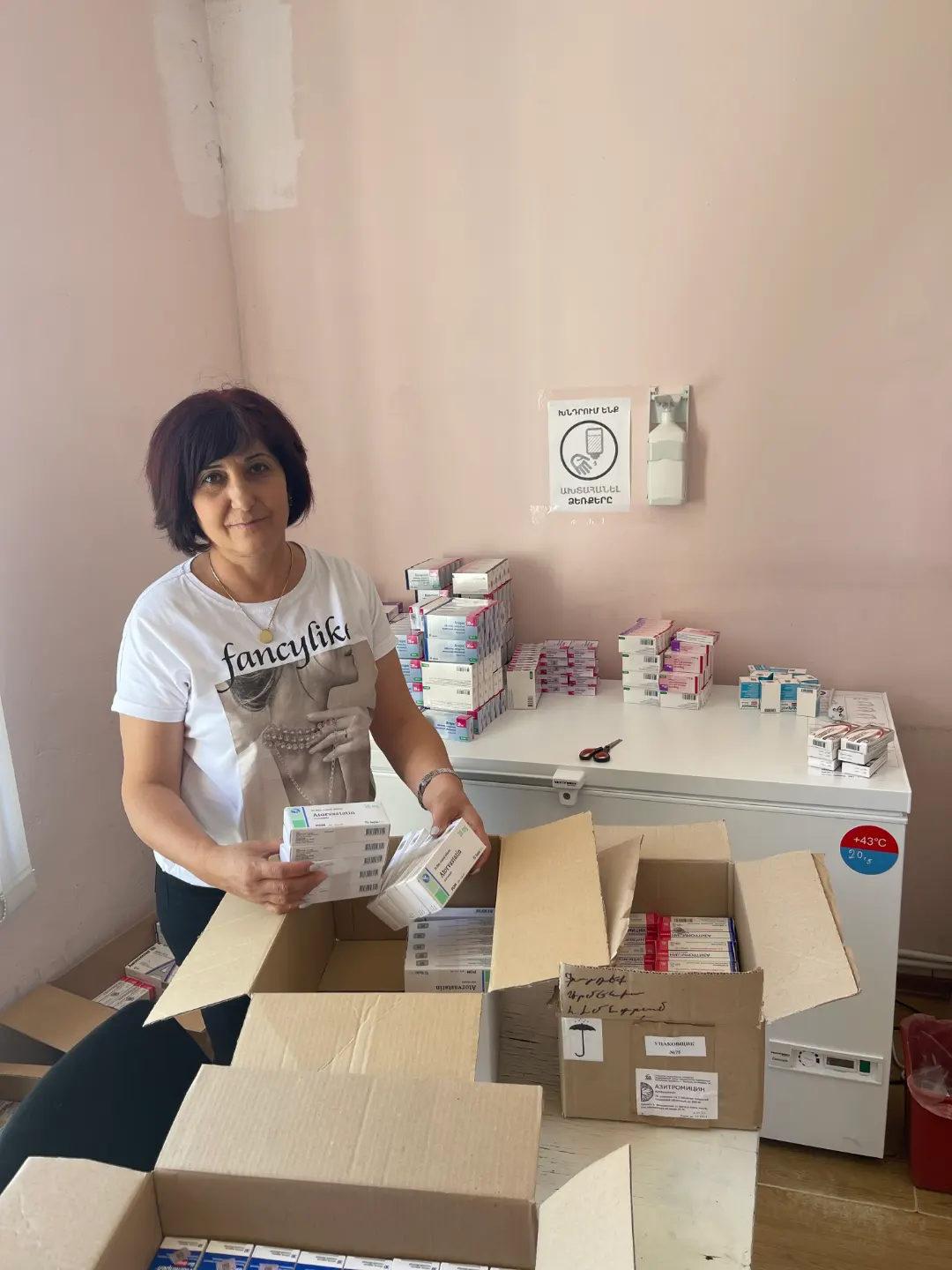
Medication provided free of charge to project beneficiaries.
Awareness about their health problems, along with the provided knowledge, tools, and treatments, allowed the community members to better prioritize their health, self-control, and prevent complications. The monitoring visits to the Horom and Pemzashen outpatient centers confirmed the intervention effectiveness. “The diagnosed patients claim now that they better manage their health at home and are more aware about healthy lifestyle and diet,” recalled Hayrapetyan. Equally important, local medical staff observed a substantial decrease in the number of ambulatory visits by patients with hypertension or diabetes, who used to attend only to have blood pressure and glucose level measured. “This is another significant benefit from our project, as it saves healthcare workers time they now allocate to manage other healthcare issues,” stressed Elmassian.
Twelve healthcare workers, including rural family physicians and nurses, participated in an interactive training with a prominent family physician from Boston to improve health communication. The training aimed to better encourage community members to prioritize their health, adopt a healthy lifestyle and diet, and, most importantly, adhere to prescribed treatments.
Overall, the planning and results of the pilot project helped validate the assumptions about the prevalent health conditions of people living in the Artik region, within the Shirak province. “The hands-on data acquired will be shared with the Armenian Ministry of Health and the local health authorities of Shirak Marz, which will help them design primary healthcare reforms and better understand the local health situation,” indicated Hayrapetyan. FIDEC’s project continues involving at 240 beneficiaries in Jajur and Akhurik, remote and vulnerable villages in the Shirak province. Both bordering Turkey, they have many socioeconomic problems, including no gas in households despite enduring the coldest and longest winters in the country, and poor road conditions that impair travel and restrict access to quality healthcare during the snowy winter months.